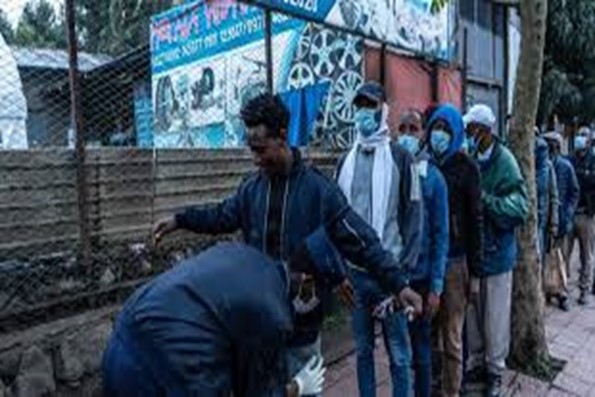By: Harkiran Sehgal/GICJ
 Tigrayans are at great risk of human rights violations since the state of emergency was declared in Ethiopia. The OHCHR issued a report which says mostly ethnic Tigrayans, have been arrested since the government declared a state of emergency on 2 November. The state of emergency allows the authorities to arrest and detain anyone without a warrant if there is “reasonable suspicion” of cooperation with “terrorist groups”, and to detain them without judicial review for as long as the proclamation is in place. Some of the measures violate international human rights law, which prohibits arbitrary detention and discrimination in all circumstances.
Tigrayans are at great risk of human rights violations since the state of emergency was declared in Ethiopia. The OHCHR issued a report which says mostly ethnic Tigrayans, have been arrested since the government declared a state of emergency on 2 November. The state of emergency allows the authorities to arrest and detain anyone without a warrant if there is “reasonable suspicion” of cooperation with “terrorist groups”, and to detain them without judicial review for as long as the proclamation is in place. Some of the measures violate international human rights law, which prohibits arbitrary detention and discrimination in all circumstances.
Under the six-month emergency, the authorities have sweeping powers to arrest people, detain suspects without trial, and conduct house searches without warrants. The UN High Commissioner for Human Rights said in a statement on 16 November 2021 “at least 1,000 individuals are believed to have been detained over the past week or so – with some reports putting the figure much higher”. Tigrayans have been targeted by the police based on a mix of hints: their surnames, details listed on identification cards and driver’s licenses, even the way they speak Amharic, the national language of Ethiopia. Arrests are conducted through house-to-house searches by security forces with support from vigilante groups who check the IDs of people on the street. Detainees, including civil servants, Orthodox priests and a lawyer are being held in youth centres and other informal detention centres across Addis Ababa because police stations are overflowing. Most detainees are being held without charge or access to a lawyer.Time may be running out but the international community must see to it that the situation does not deteriorate further. Further, the report revealed the dire need for aid by those displaced in the region. Humanitarian organizations have not yet provided any meaningful assistance.
Geneva International Centre for Justice (GICJ) calls for all those still in detention to be immediately released. Detention conditions were generally reported to be “poor”, with many of those detained held in overcrowded police stations and unaware of the reason for their detention. A court or other independent and impartial tribunal should review the reasons for their detention, or they should be formally charged. GICJ also calls on all parties to stop the fighting and to turn to political resolution of the conflict via peaceful means.
Justice, Human rights, Geneva, geneva4justice, GICJ, Geneva International Centre For Justice












